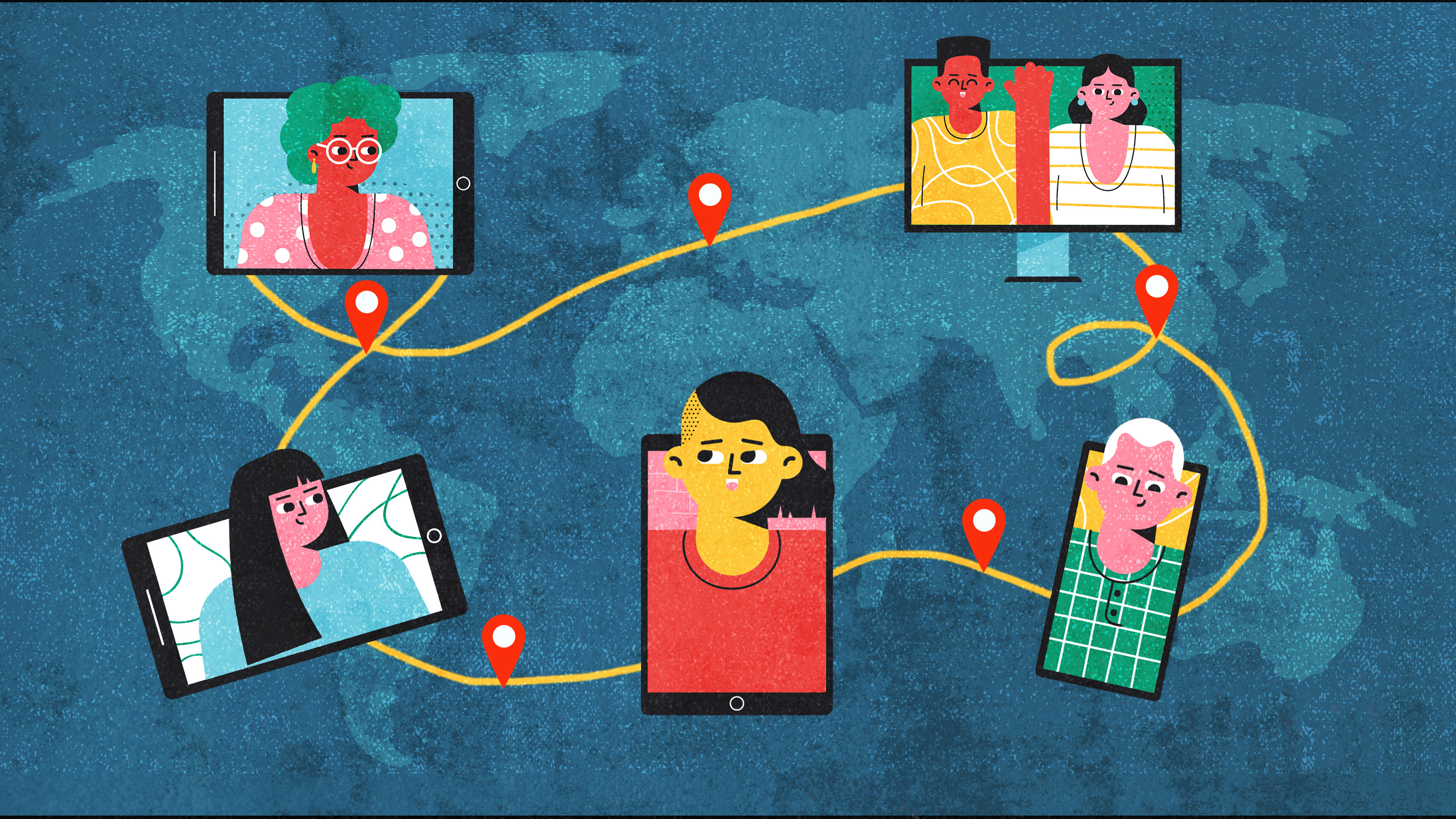
What No One Tells You About Navigating Long-Distance Friendships in Adulthood
Since your departure from childhood and into adulthood, what has been the single most challenging aspect of your social life?
That’s a pretty broad question, so answers will certainly vary. However, you’d be in the majority if you answered ‘making new friends or maintaining friendships.’ As adults, we all have so many different responsibilities and things competing for our attention that friendships can unintentionally be placed on the back burner.
Things only become even more challenging when factoring a long-distance separation into the friendship. Long-distance relationships have become somewhat synonymous with romantic relationships in pop culture, but long-distance separation puts just as much strain on a platonic friendship as it does on a romantic one. In fact, it may actually strain a friendship more since you won’t have the romantic aspect to connect with one another like you would in a romantic partnership.
To say the least, long-distance relationships of any kind are difficult. That’s why we’ve put together this article discussing some important things to remember when navigating a long-distance friendship and even some things no one ever tells you. Let’s dive in!
The Difficulty of Friendship in Adulthood
The maintenance of meaningful connections becomes increasingly important to our mental health as we become older. However, these friendships ought to enrich our lives rather than make us feel worse.
Rarely is there a valid excuse for a true friend to participate in cruel behavior toward us, whether it be intentional or recurring, and this is especially true when the action is repeated. This could involve making the other person feel ignored or used. Not showing enough empathy for a friend who is struggling or failing to provide adequate assistance are not behaviors that are characteristic of a healthy friendship.
The person who is on the receiving end of this conduct may reach a point when they no longer have the capacity or the desire to continue being subjected to the unpleasant behaviors exhibited by their long-term friends.
Keeping a relationship that isn’t working out just because it’s been going on for years and you have a lot of history together is not a rational choice from a psychological standpoint. The “well-being” that may have been acquired from this relationship in the past has either dissipated or completely disappeared at this point in time.
The Importance of Friendship
Why should we make an effort to make friends, anyway? Is it worth the hard work you put in to keep the friendship? Aside from the requirement to interact socially with other people, one of the most crucial factors is that it assists us in developing a deeper comprehension of who we are as individuals.
Feedback from people in our lives who we can trust can help us become more self-aware by making us recognize of how we come across to other people. Self-disclosure is an essential part of this process, as is paying attention to what our friends have to say. An honest friendship can be recognized by the fact that both its participants feel safe disclosing their weaknesses and their strengths and are open to receiving feedback from a friend who genuinely has their well-being in mind.
Simply put, friendships are just easier to nourish when you live near each other. You can make plans for an activity, get dinner, or just hang out and enjoy one another’s company. However, when long-distance becomes a factor, you might think your only way to connect with your friend and maintain that relationship is with a phone call or FaceTime. While those are great ways to keep in touch, there are so many other things you can do to nourish long-distance friendships.
Join In 200 Million+ On The Journey to Greatness
Learn What They Need
People are unique in their own ways. Personalities are distinct, and each friendship is unique in its own way. When it comes to keeping a long-distance friendship, you are going to need to determine which components are the most important and the ones that cannot change.
If you forget a friend’s birthday or anniversary, there’s a chance they are going to take it personally. An annual get-together might go much further than phone calls once a month for certain close pals. Finding out what your friend truly requires from you is an essential component of being a good friend.
After determining what their individual requirements are, the next step is to design a strategy for satisfying those requirements. It’s possible that the two of you will decide that time spent driving will be dedicated to catching up over the phone. If this is the case, it’s fine if one of you needs to hang up before there is a natural break in the dialogue. You may agree to offer each other ten minutes of your time if you have a ten-minute trip because this is the most convenient option for both of you.
Because of their commitments to their careers, their families, and other aspects of their personal lives, certain acquaintances simply do not have the time to schedule phone dates lasting an hour or are unable to do so. In that scenario, the long-distance friendship might develop in a different way than it did when it wasn’t long-distance.
Ask About Their New Friends
There’s no sense in feeling jealous about your friend’s new companions, though you may initially feel hurt when you see pictures of them having fun with new friends. It’s normal to have these feelings, but it’s important that you extend genuine interest and ask them all about their new friend group and how they get along with one another.
Determine the message that your feelings are trying to convey to you. Stare your jealousy in the face and investigate the factors that contribute to the unpleasant feelings you have. Do your friend’s Instagram stories showing off their new circle of friends give you the impression that your own circle of friends is shrinking? As a result, you may be reminded of how much you miss and love their companionship; therefore, you should make an effort to call them! Chances are they would love to hear from you.!
Use the fact that learning about their new friends makes you feel a certain way as motivation to strengthen your connection with your friend and show interest in their new social circle. That way, when you get the chance to see them again, you will already be familiar with these new acquaintances, and who knows? You might even emerge from the experience having made some new friends of your own!
It’s Okay To Reminisce
Sharing memories has the power to strengthen relationships. The “nostalgia card” can help rekindle contact if life gets the better of you (for example, if you realize the text message you were supposed to reply to was from two months ago — it happens to the best of us).
Send them an old photo that brings back a funny memory, or send them a message that says something along the lines of, “Hey, (insert memory here) made me think of you. I just wanted to check in with you and see how things are going for you.” Your friend will appreciate the thought and that you made the effort to reach out to them.
What’s the catch? You shouldn’t feel that the only thing you can talk about is what happened in the past. Therefore, when you and your friends are laughing about a date from several years ago that went horribly wrong, use that recollection as a transition into your current dating troubles or accomplishments to bring the conversation back up to date. Both of you will be able to invest more in the connection if you remember to keep your friendship grounded in the here and now and keep each other updated about what each of you is going through.
Accept That Some Change is Inevitable
When a close friend moves away and your friendship turns into a long-distance one, it’s crucial to keep in mind that some things are bound to change. Our lives change rapidly, and there’s a chance that you simply occupy a different space in your friend’s life now. That’s okay!
Time and the experiences they have shape people in different ways, and there are no exceptions within the confines of friendship. Positive past friendships can have a significant role in a person’s sense of identity and mental and emotional health. A friendship in which both people sincerely care for one another and try to look out for each other’s best interests is an essential element for the psychological well-being of either party involved in the friendship.
It’s perfectly normal and healthy for friendships to evolve alongside changing life circumstances. It doesn’t have to be a time for sadness; rather, you can look forward to all the ways you can enrich your friendship in this new chapter.
Set up movie dates and watch a movie together while FaceTiming. Start a book club with just the two of you and catch up while discussing an exciting novel. There are an endless number of activities you can plan to do with your long-distance friend that are just as nourishing to your relationship as spending time in person — it just takes effort!
Keep Them in the Loop
It’s common in long-distance friendships to refrain from filling your friend in on everything that happens because it just doesn’t seem “worth it” to rehash every detail and bore your friend to death. However, it is this very thing that oftentimes drives a wedge further into a friendship because the two of you lose things to talk about.
The more time you spend apart, the more things you’ll have to catch each other up on when you finally reconvene or get on a Skype call with your friend. Make a point to tell them about all the things that have happened to you recently, the big things and the small things. Did you finally ask that barista out on a date? Maybe you had a stranger pay you a compliment at the bus stop and it brightened your day.
Whatever the case, including your long-distance friend in the exciting and mundane details of your life is sure to make them feel like you never left each other’s side. There are even long-distance lamps you can buy that change color every time you touch them so you can show your friend you’re thinking of them.
Distance Is as Big of a Problem as You Make It
All that being said, when it comes down to it, the strength and longevity of your friendships are determined by both your efforts to maintain and nourish the relationship and your willingness to adapt to change. Sure, distance can certainly throw a wrench in things and make keeping up with one another more challenging, but that shouldn’t be an excuse to give up on a friendship that means something to you.
If you want to keep someone who is important to you in your life, there are many ways you can do that. As always, prioritize your own mental health and happiness. If you believe a friendship no longer provides you with growth and positivity, it is always okay to lay a friendship to rest. However, we hope that with the guidance provided in this article, you’ll have all the tools you need to sustain healthy long-distance friendships.
Greatness Authors
Greatness Authors is a collection of writers, thinkers, curiosity experts, and students of the world who are committed to bringing you the most up-to-date, impactful, and inspiring information surrounding Greatness topics.

How to Have a Healthy Romantic Relationship Even if You Share Different Beliefs
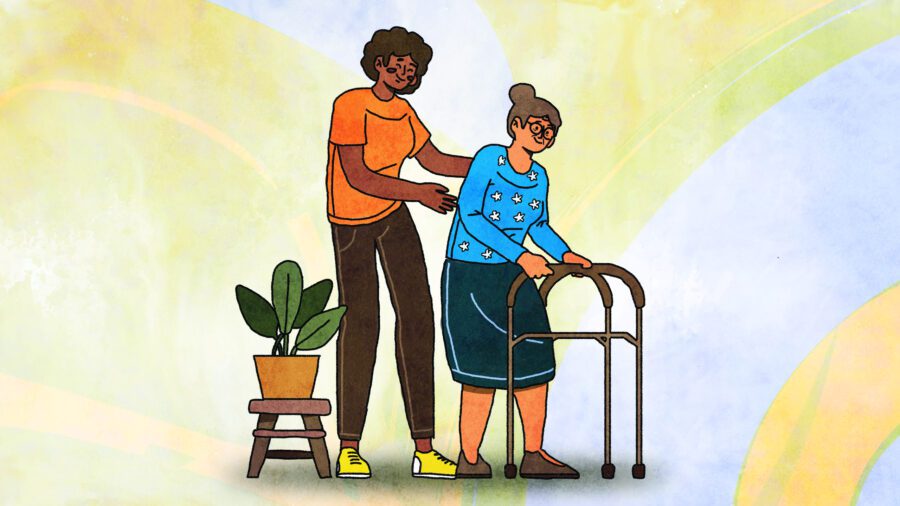
13 Tips to Help a Parent Transition into Assisted Living with Care & Respect
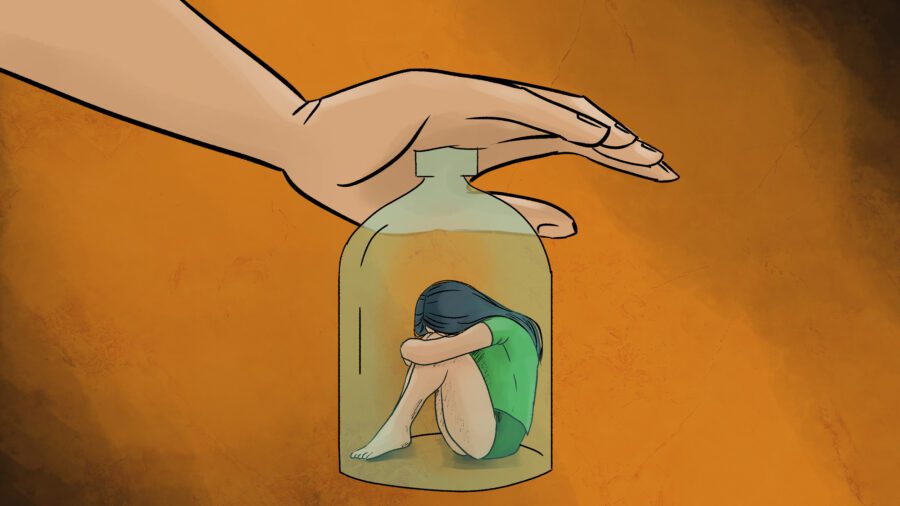
Take Your Power Back: 9 Subtle Signs Your Partner Is Gaslighting You
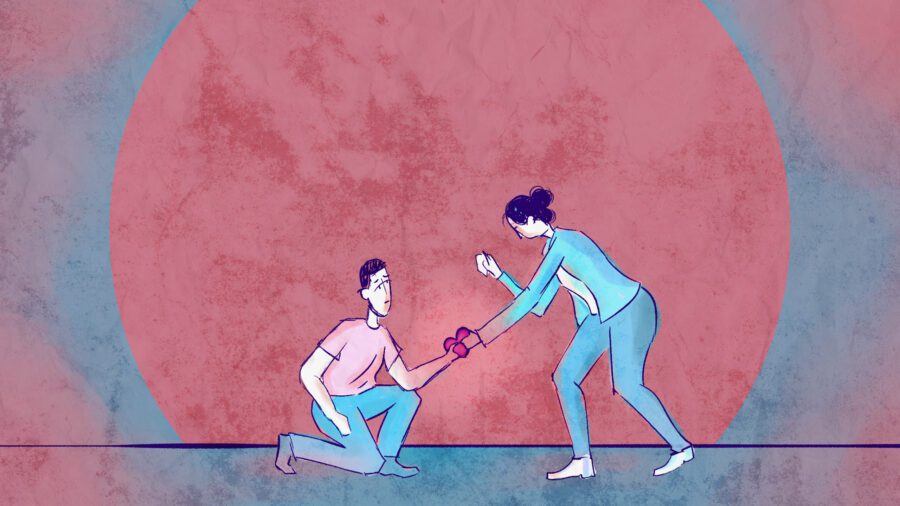
Apologizing 101: How to Apologize from the Heart & Mend Your Mistakes Without People Pleasing
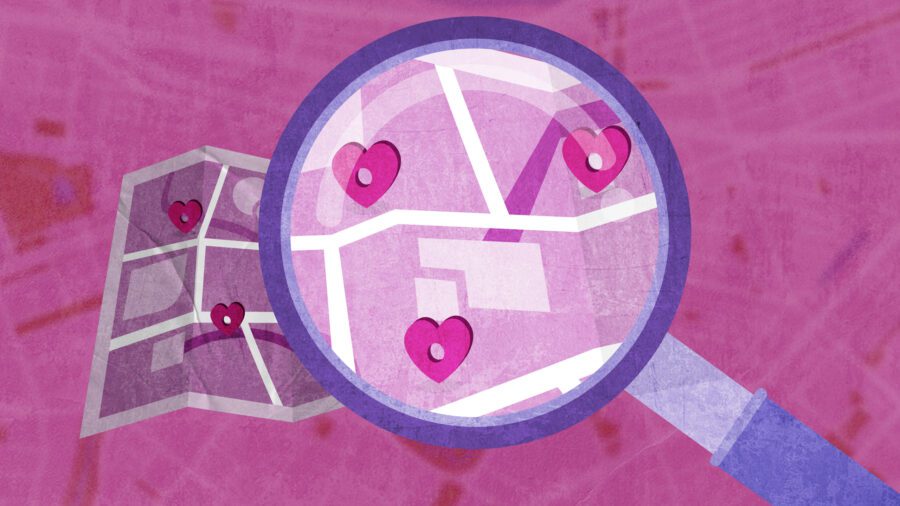
The Ultimate Guide to Finding “the One,” According to Relationship Expert Stephan Speaks










